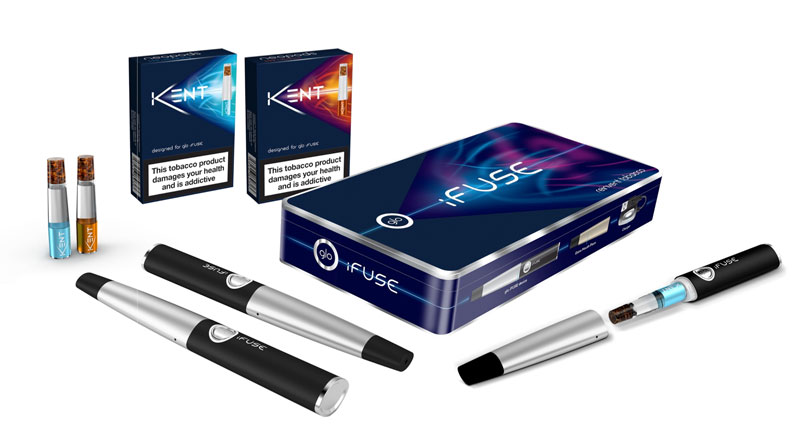There is no safe level of smoking, according to the findings of a BMJ study reported by Alex Therrien for BBC News.
The BMJ researchers reportedly found that smokers needed to quit cigarettes rather than cut back on them to lower significantly their risk of heart disease and stroke.
People who smoked even one cigarette a day were still about 50 percent more likely to develop heart disease and 30 percent more likely to have a stroke than were people who had never smoked.
There was therefore no safe level of smoking for such diseases, the researchers said.
Their analysis of 141 studies, published in the BMJ, indicates a 20-a-day habit would cause seven heart attacks or strokes in a group of 100 middle-aged people.
If the people in that group cut back to one cigarette a day the result would still be three heart attacks.
Therrien said, however, that ‘an expert’ had pointed out that people who cut down were more likely to stop.
Cardiovascular disease, not cancer, is said to be the greatest mortality risk for smoking, causing about 48 percent of smoking-related premature deaths.
While the percentage of adults in the UK who smoke has been falling, the proportion of people who smoke one to five cigarettes a day has been rising steadily.
Tag: United Kingdom

No safe smoking level

E-cig message a struggle
Forty-three percent of adults in Great Britain believe that vaping is less harmful than smoking, according to the results of a survey carried out by YouGov on behalf of the British online vaping retailer Electric Tobacconist.
The survey was carried out amongst 2,134 adults who were asked for their perceptions about e-cigarettes. Respondents were advised that ‘smoking’ included all products that used burning tobacco, such as cigarettes, pipes and cigars, while vaping meant inhaling vapor from electronic cigarettes and other devices, including vaporizers.
Asked if they thought vaping was generally better for people’s health than smoking was, 43 percent of respondents said yes, while five percent held the view that vaping was worse for people’s health than smoking was.
Thirty-one percent said they believed that vaping and smoking had the same impact on people’s health, while 21 percent of respondents said they did not know whether vaping was better or worse than smoking.
More men (46 percent) than women (41 percent) agreed that using e-cigarettes was less harmful than was smoking.
Roughly half of those who had been active on various social media channels in the past month said vaping was less harmful than was smoking (46 percent Facebook, 49 percent Twitter and 52 percent LinkedIn), while under 30 percent of those who believed vaping had the same health impact as smoking had used social media in the past month (29 percent Facebook, 25 percent Twitter and 26 percent LinkedIn).
Fieldwork for the survey, which was carried out online, was undertaken on January 18 and 19.
The figures have been weighted and are representative of all British adults aged 18+.
Relaxed over tax changes
Imperial Brands says that recently-announced changes to the US federal corporate tax rate are not expected to materially impact the group’s adjusted effective tax rate in the future.
‘The group benefits from substantial US tax amortisation of goodwill and intangibles which contributes to a relatively low adjusted effective tax rate,’ Imperial said in a note posted on its website yesterday.
‘For the year to 30 September 2018 we currently anticipate that the reduced taxation of US earnings will result in a benefit of less than one percent to the group adjusted effective tax rate. We continue to expect an overall adjusted effective tax rate for the group of around 20 percent.
‘The group’s US deferred tax assets and liabilities will be revalued to take account of the corporate tax rate changes. This is expected to result in a one-off credit of around £20m which will be treated as an adjusting item in the current year and will therefore not impact adjusted earnings.’
HNB products less risky
An independent scientific committee that advises UK government departments has said that there is likely to be a reduction in risk for cigarette smokers who switch to heat-not-burn (HNB) products, according to a story by Diane Caruana for the Vaping Post.
The Committee on Toxicity of Chemicals in Food, Consumer Products and the Environment (COT) is an independent scientific committee that provides advice to the Food Standards Agency, the Department of Health and other government departments and agencies on matters concerning the toxicity of chemicals.
It reviewed the two HNB products sold in the UK, Philip Morris International’s iQOS and British American Tobacco’s iFuse.
The evidence gathered by the committee was said to have indicated that the products posed a risk that it was unable to quantify, but that this risk was lower than that posed by smoking.
“The evidence suggests that heat-not-burn products still pose a risk to users,” said professor Alan Boobis, chairman of the COT. “There is likely to be a reduction in risk for cigarette smokers who switch to heat-not-burn products but quitting entirely would be more beneficial.”
The COT said there was a reduction in risk to bystanders when comparing second hand vapor to second hand smoke, but added that the risk to unborn babies from pregnant women using HNB products was difficult to quantify.
“The committee expressed concern over the potential for non-smokers to take up these products because they are not without risk,” Boobis added.
The CEO of Action on Smoking and Health, Deborah Arnott, while generally welcoming the COT findings, said the study was incomplete because it did not include electronic cigarettes.
“The COT review did not examine the evidence on e-cigarettes, so was unable to compare the two,” she said.
“This is needed to help provide reassurance to the public and Ash recommends COT be commissioned to carry out such a comparison.”
Lung-cancer data released
Health officials in England have defended a decision to hand over data on National Health Service cancer patients to a US firm linked to tobacco companies, according to a Press Association story.
Public Health England (PHE) said that it handed over the information after the statistical analysis firm William E Wecker submitted a data request under the Freedom of Information Act.
The health body said that it was legally bound to comply. It added that patient data was anonymised.
The comments were made after the Daily Telegraph revealed that data covering 179,040 lung tumours diagnosed between 2009 and 2013 – every case in England over the four-year period – was handed over to the data firm.
In its data request, the firm said it wanted to evaluate lung cancer trends in Australia, Ireland, the UK and the US.
The Press Association said William E Wecker described on its website its association with a number of tobacco companies, including Philip Morris International. But it is linked also to other bodies such as the American Medical Association.
‘William E Wecker Associates has established a track record of creative and effective applications of statistical and mathematical analysis to questions arising in regulation and litigation, in business and government,’ the company stated on its website.
The Press Association story is at: https://www.timesofmalta.com/articles/view/20180115/health-fitness/health-officials-defend-handing-cancer-data-to-tobacco-linked-firm.668048
One cigarette is enough
At least 61 percent of people who smoke one cigarette become, at least temporarily, daily smokers, according to a sciencedaily.com story citing an analysis of survey data by researchers at Queen Mary University (QMU) of London, UK.
The findings from more than 215,000 survey respondents, which were published in the journal Nicotine and Tobacco Research, are said to provide strong support for prioritising efforts to reduce cigarette experimentation among adolescents.
“This is the first time that the remarkable hold that cigarettes can establish after a single experience has been documented from such a large set of data,” said lead researcher Professor Peter Hajek of QMU.
“In the development of any addictive behaviour, the move from experimentation to daily practice is an important landmark, as it implies that a recreational activity is turning into a compulsive need.
“We’ve found that the conversion rate from ‘first time smoker’ to ‘daily smoker’ is surprisingly high, which helps confirm the importance of preventing cigarette experimentation in the first place.
“The UK is seeing a dramatic reduction in smoking at the moment and this tallies with recent findings that only 19 percent of 11-15-year-olds have ever tried a cigarette, so the good news is that we are on the right track.”
BAT expects tax reduction
British American Tobacco has said it anticipates that, for the year to the end of December 2018, the changes brought about by the US Tax Cuts and Jobs Act would reduce the Group’s effective tax rate percentage to the high-twenties.
‘All other things being equal, this would result in a benefit of six percent to full year 2018 earnings per share, supporting our commitment to high single digit earnings growth and increased investment in the roll out of Next Generation Products,’ the company said in a note posted on its website today.
BAT said it noted that approval had been given for the new Act and said that it was continuing to work through the full impact it would have on the company. It said it would provide in February more details about that impact as part of its preliminary announcement for the year ended 31 December 2017.
‘For the year to 31 December 2017 the announced changes will have no impact on the Group’s underlying effective tax rate, which we have previously said we expect to be around 30 percent, BAT said. ‘However, we anticipate that the changes will result in a non-cash exceptional tax credit as a result of the revaluation of deferred tax balances arising from the acquisition of Reynolds American Inc. (RAI).’
Name change mooted
UK-based Molins PLC has said it will hold a general meeting on January 22 to consider a resolution to change its name to Mpac Group PLC, according to an Alliance News story relayed by the TMA.
The move follows Molins’ decision to sell its Instrumentation and Tobacco Machinery business in August 2017 and concentrate on packaging machines.
The company reportedly said it had ‘initiated a process to identify a new corporate name aligned to its new strategic direction’.
‘Mpac Group PLC was chosen as it is a name grounded in our business’s rich heritage and which looks forward to our future as a world leading end-to-end packaging machinery provider,’ it said.
The acquisition of the Molins Instrumentation and Tobacco Machinery business by the Italy-based Coesia Group, which includes G.D, Sasib and Flexlink, was announced on August 4.
‘The Instrumentation and Tobacco Machinery division, with 2016 revenues of approximately GB£40 million, is a global player in the design, development and manufacturing of secondary tobacco processing machinery, under the brand name Molins, as well as a leading player in process and quality control instruments and analytical smoke constituent capture machinery, under the brand name Cerulean,’ Coesia said in a press note.
“With the acquisition of Molins and Cerulean, Coesia will strengthen its leadership in the tobacco machinery industry and enhance its portfolio and product offering in the packaging and instrumentation markets” Angelos Papadimitriou, the Coesia Group’s CEO was quoted as saying.
PM's New Year resolution
Philip Morris Limited (PML) yesterday ran ‘advertisements’ in a number of UK newspapers announcing its New Year’s resolution to try to ‘give up cigarettes’.
The advertisement, Our New Year’s Resolution: we’re trying to give up cigarettes, encourages adult smokers to visit a new website – www.smokefreefuture.co.uk – that contains information on quitting and switching.
In addition, it makes a number of specific commitments for the UK for 2018:- Launch a website and campaign to provide smokers with information on quitting and on alternatives to cigarettes;
- Offer to support local authority cessation services where smoking rates are highest;
- Seek government approval to insert, directly into our cigarette packs, information on quitting and on switching;
- Expand the availability of new, alternative products in the UK.
The advertisement outlines how Philip Morris International has spent more than £2.5 billion on research, product and commercial development during the past decade to develop smoke free alternatives to combustible cigarettes.
Meanwhile, Peter Nixon, MD of PML, has written to the prime minister outlining how the company believes it can play a part in helping Britain to go smoke free.
“We believe we have an important role to play in helping the UK become smoke-free,” he was quoted saying in a PML press note issued yesterday.
“The commitments announced today are practical steps that could accelerate that goal.
“We recognise that never starting to smoke – or quitting altogether – are always the best option. But for those who continue to smoke, there are more alternatives than ever available in the UK.”
Vaping forum announced
The UK Vaping Industry Association (UKVIA) intends to stage its first industry forum next year.
The Going for Growth Forum will focus on ‘building upon the dramatic growth in the sector and realising predictions of a market value of more than £4bn by 2021,’ according to a UKVIA press note.
The event, which is scheduled to be held on April 23 at the Kings Fund, a leading think tank in health and social care, is expected to bring together more than 200 industry representatives, parliamentarians, public health professionals and researchers.
“These are exciting times for the industry as more organisations acknowledge the vital role that vaping plays to help smokers quit, including the government, Public Health England and the British Medical Association,” said UKVIA board member John Dunne.
‘Such progress is matched within the industry, with predictions of a record Christmas for trading, the rise in retail vape shops across the country and the UKVIA membership doubling in the last six months.
‘Now the UKVIA is firmly established and the sector is at an important stage in its ongoing development, it is the perfect time to stage our very first industry forum.
‘Ultimately, we want to establish the biggest business to business event in the sector.’
More information is at: http://www.ukvia.co.uk/2018-forum.









